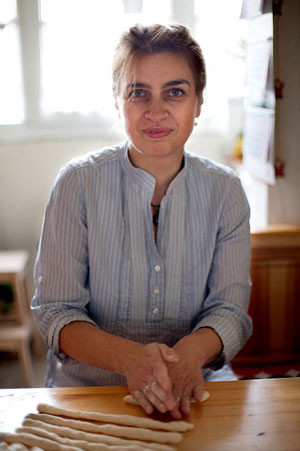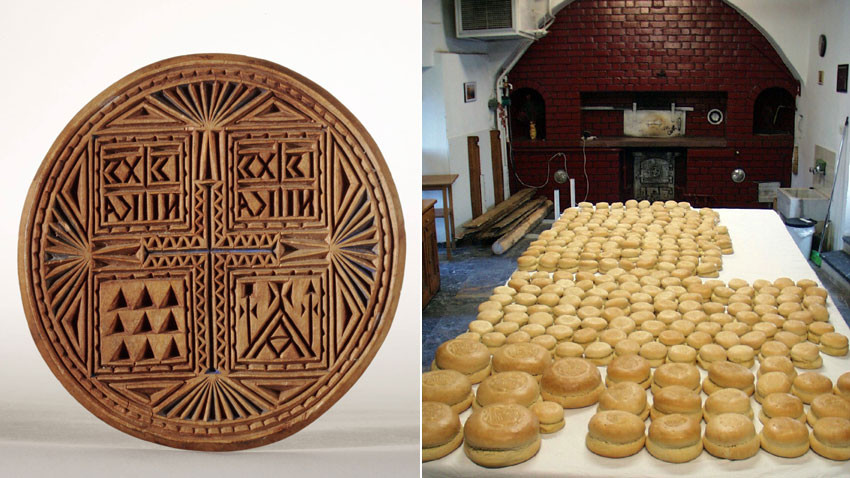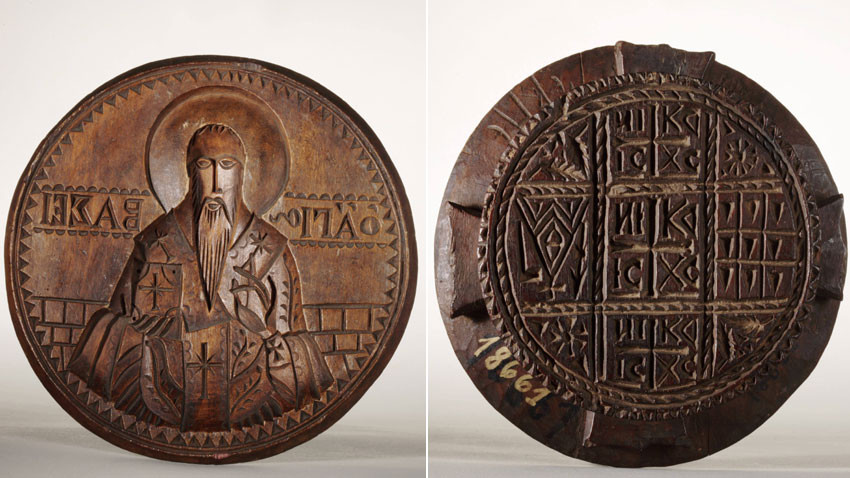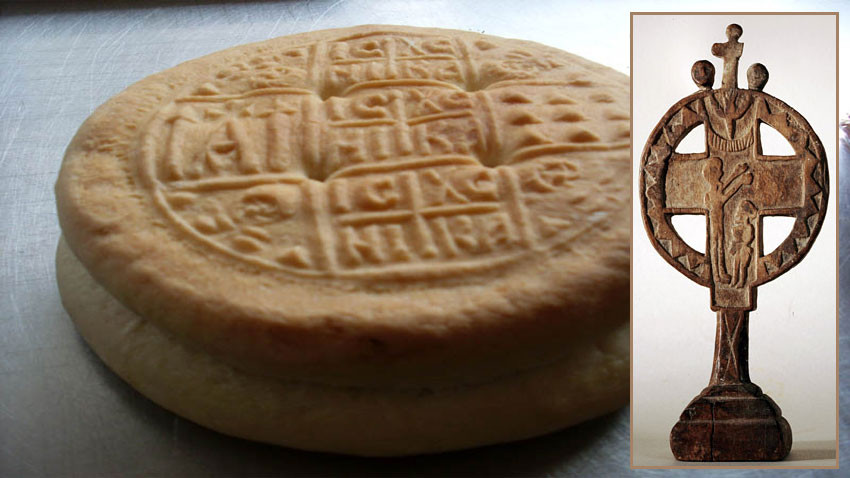
Bread is an extremely important element of Bulgarian traditional culture and each of the objects used in making ritual bread also enjoys special attention and respect.
One of these objects is the prosphora seal, which sanctifies the bread and gives it the opportunity to be part of the Holy Liturgy.
 “The seal used in the ritual process of bread making is subject to very strict requirements,” Dr. Iglika Mishkova from the Institute of Ethnology and Folklore Studies of the Ethnographic Museum at the Bulgarian Academy of Sciences says. “Usually the seal itself is divided into strictly canonical fields through the shape of the cross. In the center there is a sign reading IC XC NIKA, which means ‘Jesus Christ Conquers.’ One part of the seal is dedicated to the Virgin Mary, while another is dedicated to all angelic ranks. Without these symbols bread cannot be used in religious ceremonies.”
“The seal used in the ritual process of bread making is subject to very strict requirements,” Dr. Iglika Mishkova from the Institute of Ethnology and Folklore Studies of the Ethnographic Museum at the Bulgarian Academy of Sciences says. “Usually the seal itself is divided into strictly canonical fields through the shape of the cross. In the center there is a sign reading IC XC NIKA, which means ‘Jesus Christ Conquers.’ One part of the seal is dedicated to the Virgin Mary, while another is dedicated to all angelic ranks. Without these symbols bread cannot be used in religious ceremonies.”
As a rule, canonical prosphora seals, as well as seals with the images of different saints, used for the respective holidays, are made by monks or people who are aware of religious symbolism. But besides them, there are also home-made seals, which are used for various types of ritual and festive breads prepared at home.

“A large part of these seals were made by shepherds,” Iglika Mishkova explains. "These seals are very interesting. Their upper part is usually shaped as a cross and they were placed at altars. Most of the Christian symbols can be seen on them, although in a more primitive form. Decoration is also interesting. Makers used separate colors to fill the space. There are seals showing the year in which the seal was made, many sun symbols, crosses, the names of the people whom the seal was given to, and others. It all depends on the skills and knowledge of those who make the seals.”

Unfortunately, this knowledge is lost today. In the past, people were better acquainted with nature and they knew at what time of the year wood was suitable for carving, in order for the seal to be preserved and used for a longer period of time.
“Looking at the oldest stamps in the museum collections, it is obvious that their creators knew very well the qualities of wood, and the seals are in very good condition, unlike seals that were made much later. Apparently, knowledge was already missing and just a random piece of wood was used, but that piece really remains a soulless piece and it can hardly be used as a high-quality seal and it is not durable enough,” Iglika Mishkova explains.
In the past, prosphora seals were passed on by inheritance, usually to the eldest son, and there were practices when old seals were split between children in the family because even a small part of the seal has enormous power. The seal is no longer so detailed and clear, but this is sufficient evidence of the way people perceive this object and the importance they attach to it. However, the situation with canonical prosphora seals is different.
“The Church itself has accepted that the seal is a holy thing, and when a seal begins to stick and is already difficult to use it, it must be burned, otherwise it could be abused,” Dr. Mishkova says.
This explains why there are no rich collections of seals in Bulgarian monasteries. Nowadays, ritual breads are produced only for the needs of liturgy by small specialized shops or by the priests themselves in some settlements in the country.

“Bread seals continue to be used in many European countries,” Iglika Mishkova says. “There are regions where knowledge of the prosphora seal is preserved but it started to be used as butter seal. We say that the prosphora seal has disappeared in Bulgaria, but there are still memories of its use in many places. Sometimes, when people learn about the seals, they remember that they have seen a similar object, preserved by grandparents. Some of them donate prosphora seals to the museum, others start to keep them as precious family relics and accept them as cultural heritage, which they truly are.”
English: Alexander Markov
152 years after Bulgaria lost its beloved son and advocate for a free, independent and tolerant state – Vasil Levski, his personality continues to excite and inspire Bulgarians from all generations. Scholars continue to study the work of the Apostle..
Vasil Levski is a Bulgarian revolutionary and national hero who fought for the Liberation of Bulgaria from the Ottoman Empire. He is an ideologist, founder and organizer of the Internal Revolutionary Organization, for which grateful..
Bulgarian Patriarch Daniil will celebrate the first liturgy in London for the consecration of the new church of the Bulgarian Orthodox community in the British capital - the church of Saint Ivan Rilski. T he church is part of the Bulgarian Embassy..
30 March marks the end of the most blessed time of the year, as Muslims call the month of Ramadan. This year it started on 1 March, and the most..

+359 2 9336 661
